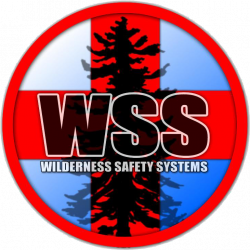This program’s primary goal is to apply current medical knowledge and critical thinking for use in remote/resource challenged patient care settings. It is targeted toward advanced care medical practitioners. The Wilderness Advanced Life Support (WALS) is Wilderness Medical Associates International’s most advanced level course. Our 36-hour course is run over 4 days(5 days for courses requiring translations). It is open to certified or licensed advanced level medical practitioners involved or interested in rescue, mass casualty, and remote outdoor environments or urban areas in disaster or crisis. This constantly-evolving course is highlighted by discussions of new and controversial ideas and the appropriate application of technologies. The learning environment is challenging, stimulating, and fun.
General objectives for this course include:
By the completion of this course participants should be able to:
- Understand the challenges and limitations of working in a remote/resource challenged, patient care setting.
- Explain principles of preventive care for patients and team members when faced by environmental challenges.
- Perform an accurate patient assessment when access to advanced diagnostics are not available
- Utilize useful medical and basic rescue equipment often available in a remote/resource challenged patient care setting.
- Via case studies and in practice during patient-oriented drills, demonstrate decision making ability for treatments and evacuations in remote resource/challenged patient care settings.
- Decide which medications and equipment that might be useful and appropriate in a variety of remote/resource challenged patient care settings.
Description
Course Content
The WALS curriculum is written in-house by a team of medical and rescue professionals and researchers. We do the research and find the evidence supporting this unique approach to medicine in austere settings. The curriculum is comprehensive, complete, and kept current on an annual basis. We believe that this is the most relevant and peer supported medical curriculum for remote and extreme environments in the world.
Day 1 – Logistics and Introduction; General Concepts in Wilderness Medicine; Patient Assessment System (PAS) with drills; Critical Systems Summary; Anaphylaxis; Spine Assessment and Treatment with PAS Drills; Wrap-up
Day 2 – Homework Review; Pain Management; Musculoskeletal; Limb Splinting; Dislocation with Reduction Demos and Practice; Wounds/Burns; Thermoregulation; Small Group BLS Simulations; Wrap-up
Day 3 – Homework Review; Altitude; Cold Injuries; Lightning; Medical Aspects of Avalanche; ALS Tools/Appropriate Technology; SAR/Organization/Roles; Night Simulation
Day 4 – Homework Review; Drowning; SCUBA; Toxins/Vectors; Expedition Practitioner/Backcountry Medicine; First Aid Kits; Medical Legal; Review; Wrap-up
Class Format
Upon receipt of a course roster from the sponsor, pre-course Study Guides will be mailed to learners two to four weeks prior to the first day of the course. Each participant is asked to take an online pretest and complete case study assignments prior to the beginning of the course. During the course, mornings are generally devoted to homework review and lectures while the afternoons focus on skill stations and patient scenarios. Skill labs include basic and advanced techniques and equipment for common problems as well as critical systems emergencies. There will be an ongoing dialogue about mission-specific, appropriate technology/medications for remote/resource challenged setting There will also be videotaped scenarios using moulaged patients; one of these is done at night.
Included Materials
All teaching materials will be at no additional cost. Students will receive the following books on this course:
- Wilderness and Rescue Medicine: A Practical Guide for the Basic and Advanced Practitioner
- SOAP Notebook
- The Field Guide of Wilderness & Rescue Medicine
- Wilderness Medicine Workbook
Continuing Education Credits
Physicians, physician assistants, nurses and other ALS certified professionals may receive up to 36 hrs of AMA PRA Category I Credit through the Wilderness Medical Society.
This activity has been planned and implemented in accordance with the Essential Areas and Policies of the Accreditation Council for Continuing Medical Education through the joint providership of the Wilderness Medical Society and WMAI. The Wilderness Medical Society is accredited by the ACCME to provide continuing medical education for physicians.
The Wilderness Medical Society designates this educational activity for a maximum of 36 AMA PRA Category 1 Credits ™. Each physician should only claim credit commensurate with the extent of their participation in the activity.
Nurses: Most State Boards of Registered Nurses accept AMA Category 1 Credit as meeting continuing education requirements for license renewal. Nurses should check with their state board regarding use of CME Credit.
Physician Assistants: The American Academy of Physician Assistants accepts Category 1 CME approval from organizations accredited by the ACCME.
Paramedics: The course is registered for 36 hours of continuing education credit through CAPCE.
Equipment
We ask our sponsors and course hosts to provide low level outdoor equipment and any specific gear relevant to their employees when in remote and austere environments. Wilderness Medical Associates International will supply a specific equipment list to cover simulation and classroom needs
Prerequisites
Participants must be ALS-trained with current certification, i.e.: EMT-P and ALS trained EMT-I, Physician Assistant (PA), Registered Nurse (RN), or Physician (MD or DO). Others admitted on a case-by-case basis. Upon sponsor registration, sponsor will send students the course ID number and password to access their online pre-course materials two to four weeks prior to the first day of their course.

